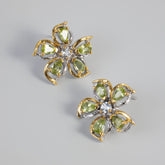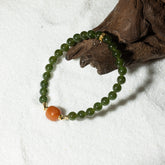How did Carl Jung influence astrology?
Carl Jung discovered that astrology could become a powerful tool for exploring the deep psyche of human beings. And his theoretical viewpoints were noticed by Dane Rudhyar, the founder of modern astrology, who then began to reshape astrology.
In fact, various subconscious beliefs and fundamental motives that underpin external behaviors are implied in the horoscope. Personality is regarded as being stable and unchangeable or as something that can be easily modified.
From the perspective of modern depth psychology, such assumptions seem rather naive. We now realize that although it is extremely difficult to change a person’s inborn personality, it is still possible to achieve it through willpower, perseverance and efforts.

Carl Jung, a Swiss psychoanalyst, was the first to recognize the great potential of astrology and realized that astrology could become a tool for exploring the deep psyche of human beings. In all of Jung’s works throughout his life, he mentioned his great respect for astrology. He believed that astrology had made significant contributions to psychology and admitted that he often applied astrology when analyzing clients.
When faced with cases that were difficult to diagnose psychologically, Jung would draw a horoscope in order to gain deeper insights from a completely different angle.
“I must say,” Jung stated, “that I have always found that astrological data could explain certain problems that I couldn’t understand by other means.” Jung regarded the constellations and planets in astrology as symbols of the archetypal processes originating from the collective unconscious.
The collective unconscious lurks within the psychological lives of all individuals and collectives. The focus of theology lies in the reproduction of archetypal cultures in different historical periods and regions, while astrology takes archetypes as a language for understanding the basic psychological motives of human beings.
As Jung put it, “Astrology, like the collective unconscious that concerns psychology, contains symbolic forms: the planets, as gods, represent the forces of the unconscious.” The gods in theology represent the forces of existence in the cosmic realm that imitates all things. Just like Plato’s “Ideas”, archetypes are both subjective and objective. They not only provide guidance for human experience but also manifest the movements of the planets.
It is precisely this dual nature of archetypes that enables the horoscope to build a bridge between the inner character and the external events that reflect the character. Jung once wrote, “There are many astonishing similarities between astrological configurations and psychological events, or between the horoscope and character traits.” He concluded that archetypes belong to psychological activities, that is to say, in addition to shaping dispositions, they also constitute the events themselves.
Astrological arrangements can both clarify an individual’s nature and interpret the specific types of external circumstances that an individual may experience. In an interview in 1954, Jung said, “A formed and definite psychological state will be accompanied by a similar astrological configuration, and this can be ensured for everyone.”
Jung recognized that astrology has the ability to reveal the connection between the movements of planets and human experiences. This unique and unparalleled characteristic makes astrology an accurate way to determine the critical moments in life. He pointed out, “I have observed many cases in which definite psychological phases or similar events are accompanied by the movements of planets, especially the difficult transits of Saturn and Uranus.”
Jung’s observations of the connection between psychological phenomena and astrological data contributed to the formation of his theory of synchronicity. He defined synchronicity as “the simultaneous occurrence of a specific psychological state and one or more external events, where these external events show a meaningful parallel with the temporary subjective state”. Therefore, Jung took the synchronicity phenomena in astrology seriously and without hesitation.
Although Jung never developed any systematic theory of astrology, it is obvious that his own theory of analytical psychology was largely influenced by astrology. There are so many similarities that one can almost come to the conclusion that at least his main concepts were directly borrowed from astrology.
Apart from explicitly recognizing the planets as archetypes and using the theory of synchronicity as a way to explain astrological coincidences, Jung’s views on the two attitude types of extraversion and introversion had long been regarded by astrologers as the polar division of the horoscope, with the two poles being the positive-masculine (extraversion) and negative-feminine (introversion) signs.
In the 1930s, Dane Rudhyar began to reshape modern astrology based on Jung’s analytical psychology. Jung proposed that the psyche is a dynamic complex of opposing forces in a state of equilibrium and that the psyche is internally inspired to develop towards the fulfillment of the psyche — a process that Jung called “individuation”.
Dane Rudhyar paid great attention to this view of Jung’s. Jung believed that the process of personality transformation is inherent within or driven by purpose. Personality is not merely the product of external forces but a purposeful struggle towards the ultimate goal of self-actualization. As individuals learn from their self-created experiences, the archetypal structures of the psyche gradually differentiate and integrate to form a whole.
Rudhyar recognized that these ideas were highly applicable to astrology. The horoscope is also a dynamic complex of opposing forces (constellations) in a state of equilibrium. The various parts of astrology, along with its countless aspects and interrelationships, symbolize the archetypal forces that strive to transform themselves into an integrated whole. Rudhyar believed that the process of individuation is latent in every horoscope.
As an art, predictive astrology uses the movements of planets to predict the nature, significance and duration of specific periods. The evolution of consciousness can be defined as consciously cooperating with the evolutionary processes inherent in the horoscope. Astrology does not simply describe the outcomes of events but regards the movements of planets as windows of opportunity to realize innate potential.


































































































































